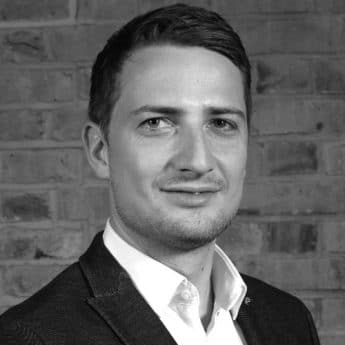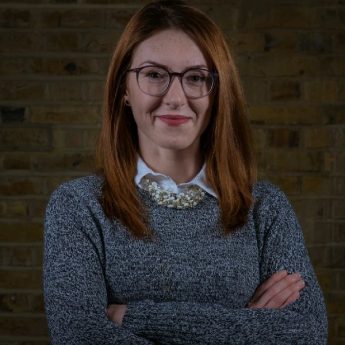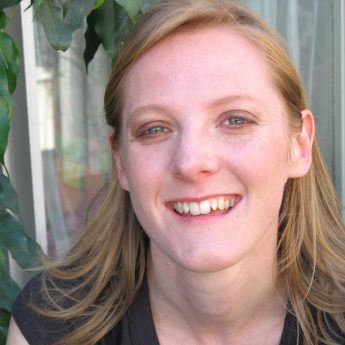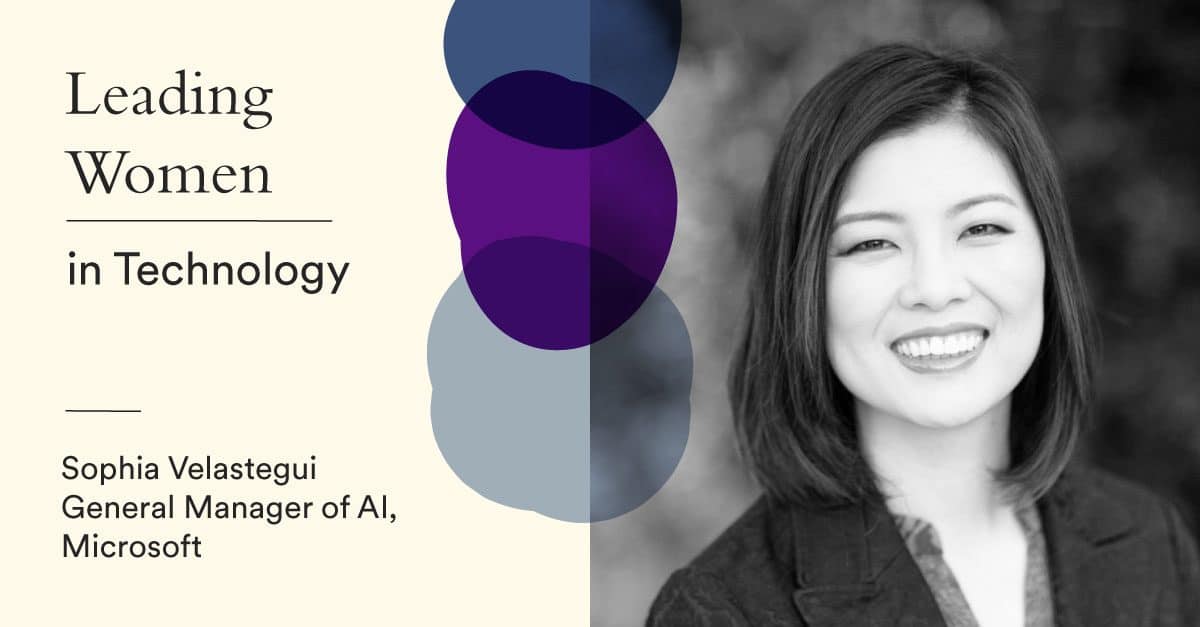Microsoft’s Sophia Velastegui : More diversity needed in the AI Revolution
Sophia Velastegui is the ultimate problem solver. As Microsoft’s General Manager in AI Products & Bing Search, she boils her job down to a simple concept: “What are the needs a person is trying to address and how can I help solve them every day?”
From chatbots to supply chains, AI most likely touches your life in some way. According to Microsoft, 75% of apps will be infused with AI by the end of 2019. Velastegui is leading several projects in which AI can sharpen results and streamline systems. One project involves compiling stock data into Excel and translating that information into investment decisions –something both Wall Street firms and retail investors can use.
75% of apps will be infused with AI by the end of 2019
“All of the major attributes about the stock can be autopopulated. AI looks at the grouping of information you have placed or some triggers associated with it. What are the things that are similar? Am I looking at a stock in the NASDAQ or a different exchange?,” says Velastegui. “ I personally use it for my stock portfolio planning and have a better understanding of the other factors I should take into account.”
Another project is a strategic partnership between Microsoft and Wal-Mart incorporating geographic data and census data for real estate planning. Artificial intelligence can help determine whether Wal-Mart should build a megastore or a smaller store in a certain city.
“It understands the difference between parent-to-child relationships. It understands if I have a list of different things – like geographical references—that I don’t need to define it as a city. It knows the difference between Paris, France and Paris, Texas,” says Velastegui. “ It’s also drawing from information we have vetted because we understand this is something that can be used for real estate planning, population control or medical applications.”
The Journey into STEM
Velastegui was born in South Korea and raised in New York City. As a fourth grader, she fell in love with science thanks to watching many episodes of Star Trek: The Next Generation. Fascinated by concepts like the transporter, she would ride her bike to the library and research all the technical terms on the tv show.
Her curiosity set her on the path in STEM as she tackled AP physics and math courses in high school. Velastegui then earned Mechanical Engineering degrees at Georgia Tech and UC Berkeley. In her master’s program, she was the only female in a lab of 18 graduate students.
Underrepresented individuals must get involved and every one of us can do something about it. It is critical that women get involved.
“What I have found is there are some people – men and women – that really love STEM and we just nerd out,” says Velastegui. While she found comfort with like-minded people, she is trying to close the gender gap today by encouraging young women to consider emerging technology either as a career or side interest.
“Underrepresented individuals must get involved and every one of us can do something about it. It is critical that women get involved. We are 50% of the population,” says Velastegui. “AI is still in its infancy and it’s being incorporated in applications in real life. We’re seeing increased roles so it’s important you learn about it whether you’re in STEM or not. AI can benefit and help augment some of the human capabilities that we have.”
Dive in and explore
Velastegui encourages everyone to learn about artificial intelligence because it will be woven into everyday life. A recent McKinsey report found 47% of executives embed AI in their business processes while another 30% is testing AI in pilot projects.
If you’re fascinated by artificial intelligence, Sophia Velastegui will happily discuss the range of practical applications with you. If you’re tentative about AI, she invites you to speak up.
“It doesn’t matter if you’re in STEM or not, start working on projects within AI and learn how it applies to your area. Different voices are very important. It’s still early days and this is a great opportunity for all of us to get involved as AI becomes applied in everyday life. “
She suggests these podcasts to learn more about AI:
- Data Skeptic (starting point, great intro)
- Partially Derivative (basic data science, ML, & AI)
- Talking machines (basic data science, ML, & AI w/ industry application)
- O’Reilly Data Show (can get technical but interesting discussion)
- Artificial Intelligence in Industry
Clear communication
Curiosity is the force that drives Sophia Velastegui in her professional journey, but clear communication is the tool that guides her. Early in her engineering career, Velastegui had a conversation with her parents that made an impact. At the time, she was working in the semiconductor space and her parents asked her about the job.
“I remember describing what I did and my parents thought I was actually trying to be the first Korean astronaut in space. It was very different from what I actually did,” Velastegui recalls. “How is it that they don’t understand what I’m doing? They love tech but were not necessarily tech savvy. It was my job as a product leader to make sure they understand [what I’m doing] because they’re representative of the community and society we’re in. They keep me honest.”
Velastegui underscores that her work in AI is meant to find solutions for the largest pool of people. She explains, “Technology for the sake of technology and trying to find a fit in the market is not the path. You have to go to the core of what’s the hard problem you’re trying to solve.”
Sophia answers questions from Hult students


“In one of your latest articles, you talk about the importance of getting more girls into STEM education and afterward, more programming jobs. How can we secure an AI that’s more inclusive in general, considering there’s not only an imbalance between men and women shaping the AI revolution but also between the Global South and Global North. The main AI stretch is occurring in the Global North (mainly China and the U.S.) and we see hardly any in Africa or Latin America. Against this background, how can we ensure the AI revolution is benefiting everyone and taking the needs of everyone in the world into account?”
Sophia:
I’m very honored to be part of the World Economic Forum. One of the things that I bring is AI into the various solution and recommendation that WEF provides. There are various councils that go into different domains. There are also councils that are very uniquely region-oriented…. like South America, Africa, Asia and so forth. It is required that any framework or recommendation that we have for the domain-specific industries, we must engage regularly with the regional team to make sure that our solution takes into account the world-view of solutions. So it is not the Global North or the Global South. It is the world economics that we’re taking into consideration.
I find it to be incredibly powerful and also insightful about some of the challenges other regions I personally don’t have exposure other members have. WEF has been very proactive about that.


“We are building A.I. to enhance our lives but A.I. technology is known to mirror human biases. What do you see as the biggest social challenges that will arise with this? How does Microsoft take this into consideration when working on new products?“
Sophia:
For all those who have trepidation and concerns, get involved so that the diverse backgrounds and experiences that you have is being considered in the solution. That’s why I said it doesn’t matter if you’re in STEM or not, please start working on projects within AI and how it applies to your area. It’s because different voices are very important.
We (Microsoft) do take into account, “Are we giving a comprehensive view of the situation? Is the data we have diverse in nature and the data set? Should we be gathering more data so we represent the different types of people and needs of the world? We have programmed in accessibility that we take into account. That’s also part of FATE ((Fairness, Accountability, Transparency, and Ethics in AI) that’s been defined.
It’s still early days, and so that’s what I’m saying, this is a great opportunity for all of us to get involved, to make sure as it (AI) becomes applied in everyday life that the diverse voices are there. Recognizing some of the concerns is #1 and then doing something about it. I know that MSFT has taken a stand on this and I’m very proud of that.


“When you create a new product with your AI team, how do you integrate ethical questions. In other words, how do you integrate the potential impact — both positive and negative – on society? Do you have an interdisciplinary panel handling them?”
Sophia:
That’s actually a great question. It goes back to ethical design. There has actually been work done in ethical design, inclusive design. We don’t necessarily have to reinvent the wheel when we talk about that in the AI solutions and products that we create. Another thing that I’m very proud of – with respect to Microsoft- is they made a framework [that they worked] with other tech companies, NGO’s and universities called “Partnership in AI” where they have various discussions and viewpoints that they have. It gave some of the framework that Microsoft published called “Aether” (which stands for AI and Ethics in Engineering and Research) about some of the areas of consideration.
They could have easily just kept it in-house, but they took a stand and said, “Although it’s great for us and product leader and technical leaders to consider, this is bigger than us. This is something we should share and be upfront about it. So they did share some of the recommendations and the framework.
Internally, what we do as product leaders, is we incorporate FATE (Fairness, Accountability, Transparency, Ethical Design) in recommendations of things to consider or questions that we ask as we talk about the things we develop. Another thing I would say for those who are starting off on all of this and still trying to see how to incorporate it internally is IEEE (which is a standard body) and working with NIST which is the National Institute of Standard & Technology), they actually have a certification program. The certification program is the Ethics Certification program for Autonomous and Intelligence systems. It’s still early days to consider a certification, the fact that you have a document that gives you a little bit more detail, the framework and how to measure it. Metrics is very important. In order to consider a solution, I think that’s a really great first step and that’s how you can bring it in internally to the various products.
Hult offers a range of highly skills-focused and employability-driven business school programs including a range of MBA options and a comprehensive one year Masters in International Business. To find out more, take a look at our blog International career advice with Mike Grandinetti. Download a brochure or get in touch today to find out how Hult can help you to learn about the business world, the future, and yourself.



